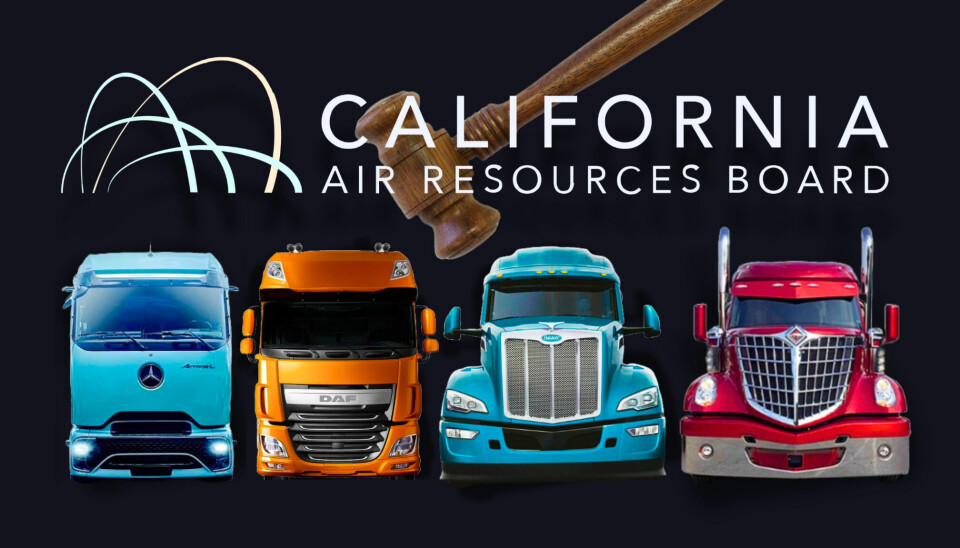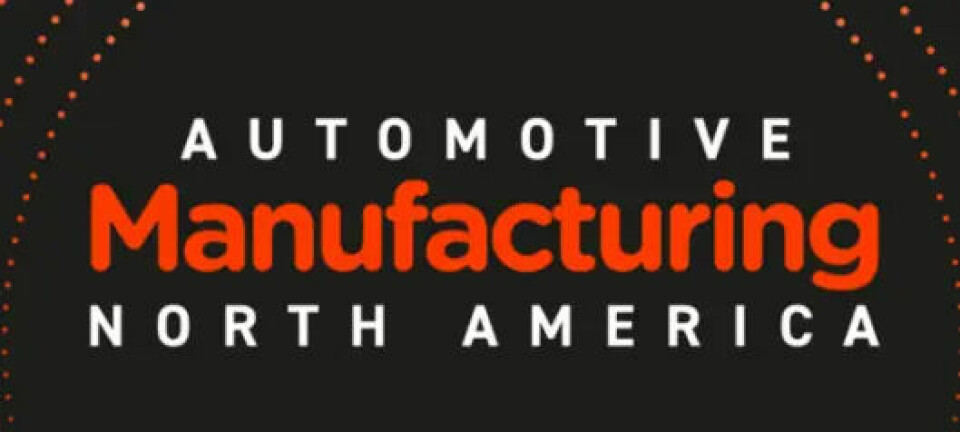Regulatory Disruption
Daimler, Volvo, Paccar and Traton challenge California clean-air deal in court

Truckmakers are suing to exit California’s Clean Truck Partnership, citing federal pressure. Critics say it undermines market certainty, innovation and the future of electric truck manufacturing.
Four of the largest truck manufacturers in North America—Daimler, Volvo, Paccar and Traton—have filed a lawsuit against the Clean Truck Partnership (CTP), an agreement they signed with the California Air Resources Board (CARB) in 2022. The CTP was designed to secure compliance with state emissions regulations, deliver infrastructure investment, and support the transition to zero-emission truck production.
In their legal filing, the manufacturers cast themselves as recipients of unfair conflicting jurisdictional demands, stating “the OEMs are in an impossible position” and “plaintiffs are caught in the crossfire” between California’s regulatory mandates and federal opposition.
For the manufacturing sector, this is more than a legal squabble. The agreement underpins long-term capital allocation, R&D scheduling and tooling investments that typically span five to seven years.
Walking away at this stage risks slowing EV production capacity ramp-ups, disrupting supply-chain commitments, and undermining California’s established role as a technology-lead market.
Aligning with Washington’s rollback agenda
The lawsuit coincides with efforts by the Trump administration to dismantle environmental protections. These include moves to repeal California’s authority to set emissions standards and to weaken the Environmental Protection Agency’s climate-science framework.
From a manufacturing perspective, regulatory whiplash of this sort directly affects plant investment timelines and localisation strategies. Suppliers working on drivetrains, battery systems, and charging infrastructure plan years ahead. Any sudden removal of rules or incentives increases the likelihood of stranded assets.
Manufacturing performance and the electric truck gap

Despite controlling a commanding share of the US truck market—around 40 per cent for Daimler and 15 per cent for Volvo—their zero-emission penetration remains low. Daimler’s electric trucks account for less than 1 per cent of sales, while Volvo’s stand at roughly 1.7 per cent.
Both have pledged to make all new truck sales carbon-free by the 2030s, but production data tells a more conservative story. Scaling electric truck manufacturing demands stable policy signals to justify automation upgrades, supplier retooling, and workforce reskilling—areas that instability now puts at risk.
Financial results underscore the pressure. Daimler’s Q2 saw sales fall 20 per cent and orders collapse by over 50 per cent, though electric truck deliveries rose marginally. Volvo’s net sales dropped 12 per cent in the same period. The timing of the lawsuit, coming amid such declines, suggests a defensive posture rather than an innovation-led push.
Meanwhile, competitive benchmarks abroad look stark. China is accelerating electric truck deployment, leveraging state-directed industrial policy to align production and market uptake. In Europe, registrations of electric trucks surged by 48 per cent last year. Without regulatory consistency, US producers risk ceding leadership in manufacturing scale, cost learning, and export competitiveness.
“These companies are now trying to wiggle out of the commitments they made. If they are allowed to abandon their commitment to California, it will be our communities, the rule of law, and the hundreds of businesses that have invested in electric trucks that will suffer.”
Reactions from advocacy groups
Eighteen environmental and public-health organisations, including Public Citizen, Oregon Business for Climate, Sierra Club, and the Natural Resources Defense Council, have criticised the lawsuit, warning it could reverse gains in clean-air policy and manufacturing innovation.
Craig Segall, former Deputy Executive Officer and Assistant Chief Counsel at the California Air Resources Board, said: “Do these companies have any idea how to sell their own products? Imagine being a truck company, working for years towards an agreement with the world’s fourth largest economy that helps you sell electric trucks and finance infrastructure despite federal uncertainty... and then burning your regulators and destroying shareholder value by blowing up that agreement. Red flags abound."
Guillermo Ortiz, Senior Clean Vehicles Advocate at the NRDC, argued: “Daimler and Volvo’s lawsuit is a cynical reversal of course. These companies helped negotiate the Clean Truck Partnership to secure regulatory certainty. Now they’re trying to dismantle the very deal they shaped—injecting instability into a market they claim to lead. This is bad faith, plain and simple, and it raises questions about whether these manufacturers are serious about their ability to deliver clean trucks to the global stage."

Adam Zuckerman, senior clean vehicles campaigner with Public Citizen’s Climate Program, said: “This lawsuit does not pass the sniff test. The Clean Truck Partnership was designed exactly for a moment like this. In order to create market certainty, truck makers agreed to abide by the CTP regardless of federal action.
“These companies are now trying to wiggle out of the commitments they made. If they are allowed to abandon their commitment to California, it will be our communities, the rule of law, and the hundreds of businesses that have invested in electric trucks that will suffer.”
Justin Balik, VP for States at Evergreen Action, noted: “The Clean Truck Partnership has been a key tool to secure investments in clean transportation, ensuring we can continue to make progress cleaning our air and competing for the technologies of the future.
“At a time when our industry leaders could choose to be visionaries and put forward a roadmap for progress, this cynical move simultaneously threatens public health and economic competitiveness. Throwing sand in the gears to prevent progress is not a strategy for anything, including the prosperity of industry."
Juan Roberto Madrid, Sustainable Communities Program Advocate at GreenLatinos, warned: “The Clean Truck Partnership has been instrumental in advancing clean truck investments that can help in addressing the reduction of NOx and GHG emissions. This misanthropic move by Daimler and Volvo stand to penalize communities by reneging on their commitment.
“To be sure with this move all communities will sure but those Disproportionately Impacted Communities made up of Black, Latino, and Indigenous communities will continue to bear the cost of higher rates of respiratory illnesses such as asthma, cancer, heart conditions and ultimately death as a result the increase in exposure to PM2.5 diesel emissions."
Jakob Evans, Sierra Club California Senior Policy Strategist, said: “This move against the Clean Truck Partnership is a disappointing abandonment of a commitment that secured regulatory stability in bringing cleaner trucks to California and many other states. This action jeopardizes a commitment that would bring clean air to the communities that need it most.
“It is disappointing to see major truck manufacturers attempting to back away from their commitments in response to a hostile federal government. Now is the moment for private-sector leadership, not maneuvers that undermine our climate goals and slow states’ progress towards clean air.”
Diverging corporate strategies within policy turmoil
Not every manufacturer is seeking to roll back state rules. Cummins, the global power technology company, responded to proposed EPA changes by saying it was “looking forward to working with the EPA on providing regulatory certainty” to its customers.
Yet Traton’s CEO, Christian Levin, whose subsidiary International is a plaintiff, highlighted the destabilising effect of federal uncertainty: The proposed EPA rollbacks on emissions regulations are causing “a lot of insecurity and actually frustration” for manufacturers, their dealers, and their customers, increasing market uncertainty and jeopardizing pre-buys.
These divergent positions reveal a manufacturing sector split between firms willing to recalibrate production strategy to match evolving standards, and those preferring to freeze investment until policy aligns more closely with their cost and compliance preferences.
Findings of the Federal Trade Commission
The Federal Trade Commission (FTC) resolved its antitrust investigation into the Clean Truck Partnership, an agreement between four major heavy-duty truck manufacturers and the California Air Resources Board. The FTC found the agreement raised concerns because it limited competition by forcing manufacturers to produce zero-emissions engines and allowed them to enforce restrictions on competitors. To resolve the issue, the manufacturers agreed to end the partnership, act independently, and not enter into similar agreements that would allow them to enforce rules on one another in the future.
The high cost of regulatory uncertainty and a fragmented production future
For an industry where a heavy truck platform can have a 20-year production lifespan and where tooling changes can cost hundreds of millions of pounds, the erosion of regulatory certainty introduces both immediate and strategic risk. The Clean Truck Partnership was, in part, designed to shield manufacturing investment from Washington’s political cycles.
Its unravelling could leave manufacturers exposed to higher compliance costs later, fragmented standards across states, and a loss of first-mover advantage in electric truck exports.
While the lawsuit may win time in the short term, it risks undermining the very transformation the sector has spent the past decade preparing for. If the North American truck manufacturing industry hesitates now, others—already scaling in Asia and Europe—are poised to capture market share, technology leadership, and the economies of scale that come with them.








